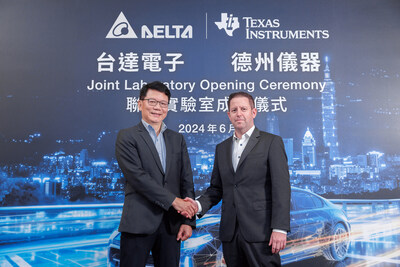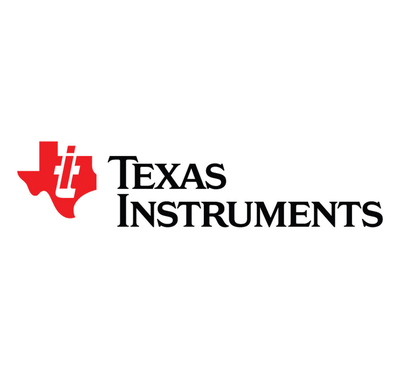Texas Instruments and Delta Electronics announce collaboration to advance electric vehicle onboard charging
Texas Instruments (Nasdaq: TXN) and Delta Electronics have announced a collaboration aimed at advancing electric vehicle (EV) onboard charging and power solutions. The partnership will leverage both companies' R&D capabilities in a joint innovation lab in Pingzhen, Taiwan, to optimize power density, performance, and size, aiming to make EVs safer, faster-charging, and more affordable. This initiative is part of a three-phase development program, starting with a lightweight, cost-effective 11kW onboard charger that achieves up to 95% power conversion efficiency using TI’s C2000 real-time microcontrollers and active EMI filter products. Subsequent phases will focus on achieving higher automotive safety standards and developing next-gen automotive power solutions using GaN technology.
- Collaboration with Delta Electronics to develop advanced EV power solutions.
- Establishment of a joint innovation laboratory in Pingzhen, Taiwan.
- Phase one aims for a 30% size reduction in onboard chargers with 95% power conversion efficiency.
- Use of TI's C2000 real-time microcontrollers and EMI filter products.
- Improvement in automotive safety standards up to ASIL D in phase two.
- Focus on GaN technology for next-gen solutions in phase three.
- Potential risks associated with reliance on new technologies like GaN.
- Challenges in meeting automotive safety integrity levels (ASILs).
Insights
Texas Instruments (TI) and Delta Electronics' collaboration to advance EV onboard charging represents a significant strategic move for both companies. The focus on optimizing power density, performance and size is expected to accelerate EV adoption, thus potentially driving revenues for both firms. For investors, this partnership could result in increased market share in the EV sector, which is projected to grow substantially over the next decade.
From a financial perspective, the key takeaway is that TI's and Delta's R&D investments should lead to innovative products that could command higher margins. Additionally, the reduction in the size of the onboard charger by 30% while achieving up to 95% power conversion efficiency indicates a competitive edge in the market. However, the return on these investments will need to be carefully monitored, as R&D in high-tech sectors can be capital-intensive and carry risks related to technological feasibility and market acceptance.
In the short term, this collaboration might have minimal impact on earnings, but long-term potential is significant. Investors should look at this partnership as a forward-looking strategy aimed at capturing a larger slice of the EV market.
The use of TI's C2000 real-time microcontrollers (MCUs) and proprietary active EMI filter products in Delta's 11kW onboard charger is a technical advancement that is noteworthy. The reduction in charger size by 30% while maintaining high power conversion efficiency is a remarkable engineering feat. This will likely enhance the overall performance and reliability of EVs, addressing one of the major concerns of EV users—charging time and efficiency.
The collaboration's second phase, which focuses on achieving automotive safety integrity levels up to ASIL D, shows a commitment to high safety standards. This level of safety is critical for gaining consumer trust and meeting regulatory requirements across major markets. The integration of automotive isolated gate drivers to enhance power density while minimizing size further showcases the technical prowess and innovative approach of this partnership.
While the third phase's focus on GaN technology is exciting, it is still evolving and might require further development before it becomes mainstream. However, TI's existing decade-long experience in GaN technology bodes well for overcoming these challenges.
The collaboration between TI and Delta Electronics is poised to create a ripple effect in the EV market. As both companies aim to enhance the power density and performance of EV power systems, they are directly addressing some of the critical barriers to widespread EV adoption, such as charging infrastructure and efficiency. By making EVs more affordable and practical, this partnership has the potential to accelerate the industry's growth.
This collaboration is particularly relevant as the global push towards electrification and sustainability intensifies. Governments worldwide are implementing stricter emissions regulations and offering incentives for EV purchases. Companies that can deliver advanced and efficient power solutions will be well-positioned to capitalize on these trends.
However, it's essential to note that while this strategic alliance is promising, the competitive landscape is intense. Other technology giants are also investing heavily in EV-related innovations. Therefore, the partnership's success will hinge on its ability to outpace competitors in product development and market penetration.
"The transition to electric vehicles is key to helping achieve a more sustainable future, and through years of collaboration with Delta Electronics, we have a solid foundation to build upon," said Amichai Ron, senior vice president for Embedded Processing at TI. "Together with Delta, we will use TI semiconductors to develop EV power systems like onboard chargers and DC/DC converters that are smaller, more efficient and more reliable, increasing vehicle driving range and encouraging more widespread adoption of electric vehicles."
"Delta has been developing high-efficiency automotive power products, systems and solutions since 2008 to help reduce transportation-related carbon emissions," said James Tang, executive vice president of Mobility and head of the Electric Vehicle Solutions business group at Delta Electronics. "Through the establishment of this joint innovation laboratory with TI, Delta intends to leverage TI's abundant experience and advanced technology in digital control and GaN to enhance the power density and performance of our EV power systems. With more leading-edge product development and design capabilities, we aim to achieve closer technology exchange and collaboration to accelerate product development and improve product safety and quality. We look forward to furthering our technology leadership and creating a win-win situation in the rapidly developing electric vehicle market."
Three phases of development for next-generation automotive power solutions
- Phase one for the collaboration focuses on Delta's development of a lighter-weight, cost-effective 11kW onboard charger, using TI's latest C2000™ real-time microcontrollers (MCUs) and TI's proprietary active electromagnetic interference (EMI) filter products. The companies are working together using TI's products to reduce the charger's size by
30% while achieving up to95% power conversion efficiency. - In phase two, TI and Delta will leverage the latest C2000 real-time MCUs for automotive applications to enable automakers to achieve automotive safety integrity levels (ASILs) up to ASIL D, which represents the strictest automotive safety requirements. Highly integrated automotive isolated gate drivers will further enhance the power density of onboard chargers, while also minimizing overall solution size.
- In phase three, the two companies will collaborate to develop the next generation of automotive power solutions, capitalizing on TI's more than 10 years of experience in developing and manufacturing products with gallium nitride (GaN) technology.
"The rapid growth of electronics in automotive applications has enabled more feature-rich, efficient and safer vehicles. However, technical challenges remain," said Luke Lee, president of
About Texas Instruments
Texas Instruments Incorporated is a global semiconductor company that designs, manufactures, tests and sells analog and embedded processing chips for markets such as industrial, automotive, personal electronics, communications equipment and enterprise systems. At our core, we have a passion to create a better world by making electronics more affordable through semiconductors. This passion is alive today as each generation of innovation builds upon the last to make our technology more reliable, more affordable and lower power, making it possible for semiconductors to go into electronics everywhere. Learn more at TI.com.
Trademarks
C2000 is a trademark of Texas Instruments. All registered trademarks and other trademarks belong to their respective owners.
![]() View original content to download multimedia:https://www.prnewswire.com/news-releases/texas-instruments-and-delta-electronics-announce-collaboration-to-advance-electric-vehicle-onboard-charging-302178627.html
View original content to download multimedia:https://www.prnewswire.com/news-releases/texas-instruments-and-delta-electronics-announce-collaboration-to-advance-electric-vehicle-onboard-charging-302178627.html
SOURCE Texas Instruments









